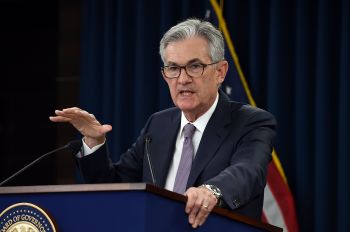Treasury may buy stake in banks
TEXT OF STORY
Kai Ryssdal: Henry Paulson probably gets driven around Washington in a Ford Crown Victoria. Shares in that company, by the way, hit 2 bucks today. But no matter what he drives, Paulson’s about to steer a different path on the bailout package. One that would make taxpayers more, shall we say, active participants in the financial markets.
Our Washington bureau chief John Dimsdale is here to walk us through that plan. Hello, John.
John Dimsdale: Hello, Kai.
Ryssdal: So, do that walking thing. What is the idea?
Dimsdale: Well, this is a direct injection of taxpayer money into banks in return for stock. The government would identify troubled financial institutions and buy an equity stake. The money that the banks get, in theory at least, should persuade them that it’s safe to lend and borrow, and get credit markets unstuck.
Ryssdal: What’s the benefit, though, of this plan versus the original bailout idea, which is taking those bad assets off the banks’ books, the bad loans?
Dimsdale: Well, it should work faster. Banks could get access to this money right away, and the government can start doing it by the end of the month. So we wouldn’t have to wait for the infrastructure that’s needed to identify bad loans and negotiate the prices. That’s gonna take several weeks to get going.
Ryssdal: What about risk to you and me, though, John, the taxpayer?
Dimsdale: Well, it’s a stock play. It’s buying stock. Taxpayers are taking a bet that the banks are going to recover and grow, and eventually this stock can be sold with a gain to the Treasury.
Ryssdal: It’s scary to hear you talking about the government of the United States making a stock play.
Dimsdale: Especially today.
Ryssdal: That’s right. If this is gonna work faster and gonna have, you know, some risk, maybe a little bit less, why didn’t Henry Paulson do this first, instead of making it Plan B?
Dimsdale: Well, it’s partly ideology. This is a partial nationalization of the banking industry. And the industry itself opposes it, since it dilutes the value of stocks that are owned by existing shareholders. Taxpayers would get a preferred shares, and that means they’re first in line to get a share of the profits. I talked to one banker today, who called the capital injections counterproductive. He said that once Treasury moves in and buys a stock in a bank, it’ll scare away other private investors, ’cause they’ll figure, hey, the government has looked at the books and they found weaknesses. It’s like what happens when the neighbors see a doctor walk into a house down the street. They figure, hey, something’s wrong.
Ryssdal: Well, investors were pretty scared today, though, John, even though the capitalization idea has been out there since at least last night. It’s been floating around a little bit longer than that. Why aren’t traders reacting more positively?
Dimsdale: Well, the interpretation of the opponents of the idea are saying, yeah, the markets don’t like this. But others are saying, you know, the markets have concluded that there’s not going to be any quick fix to this credit crisis, and more generally, stock investors are looking at a pervasive global economic downturn that’s going to have long-lasting effects on jobs and consumer spending and therefore stock performance. So a fix for the credit market is only one part of the picture for the stock market. If taxpayers taking a stake in banks works, that’s a first step and it is a big step to recovery, but it’s only one in working our way out of an economy that a very troubled and unbalanced economy overall.
Ryssdal: Now the timetable question, John. How long do you think it will be before the White House or Treasury Secretary Paulson announce it? Today the White House danced around it a little bit at a press conference.
Dimsdale: It sounds like it will come pretty soon. Maybe in conjunction with the upcoming G-7 finance ministers meeting tomorrow.
Ryssdal: And then, of course, the IMF meeting this weekend. John Dimsdale, in Washington, where all that stuff is going to happen. Thank you, John.
Dimsdale: You’re welcome, Kai.
There’s a lot happening in the world. Through it all, Marketplace is here for you.
You rely on Marketplace to break down the world’s events and tell you how it affects you in a fact-based, approachable way. We rely on your financial support to keep making that possible.
Your donation today powers the independent journalism that you rely on. For just $5/month, you can help sustain Marketplace so we can keep reporting on the things that matter to you.


















